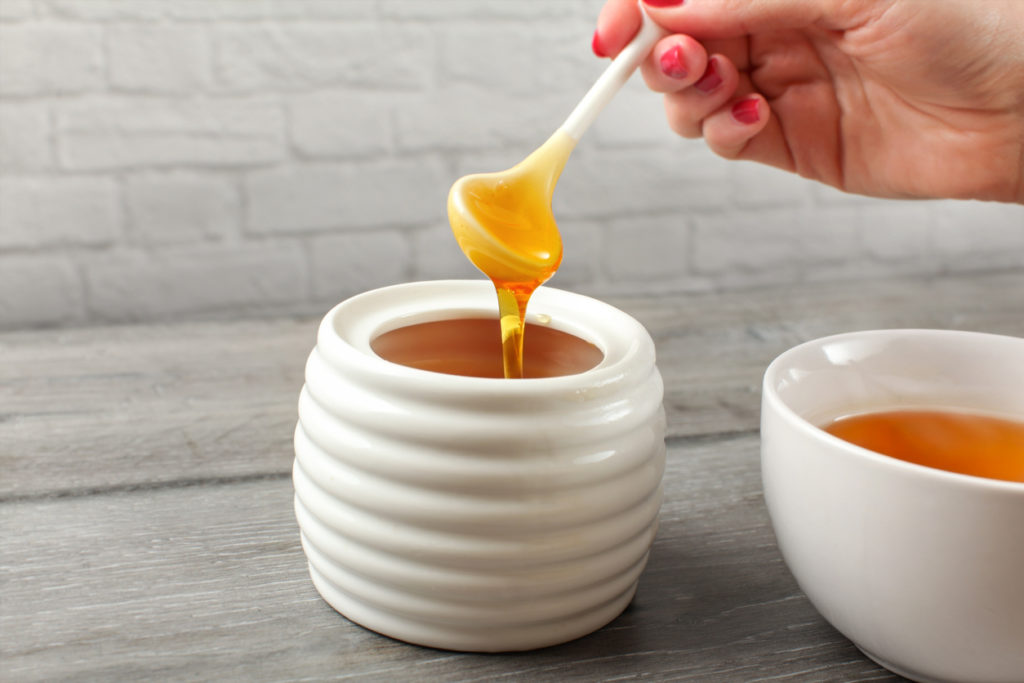
Compared with sugar, fructose, corn syrup, and other sweeteners, honey is considered to be a healthier option for those with a sweet tooth. But is honey good for you? Some say that since it is coming straight from nature, honey has to be the best way to add sweetness to your food. However, there are others, especially nutritionists and dietitians, who remind us that honey is still sugar and we have to consume it in moderation. So, who should we believe?
What is honey?
Honey is the sweet and delicious liquid prepared with care by honeybees. They collect the sugar-rich nectar of flowers and then consume and digest it to eventually regurgitate the nectar into honey cells. A high percentage of the water in the honey cells evaporates leaving behind the sweet, thick, and sticky liquid we call honey.

Honey is basically fructose and glucose, which we all came to fear because they are indeed simple sugars. To pop the bubble completely, I should also remind you that all sugars are natural sugars, honey included.
However, and there’s a big however here, honey contains an abundance of vitamins, minerals, amino acids, and enzymes that boost its nutritional scheme and propel it at the top of the healthy sugars we should consume. These are the compounds responsible for the medicinal benefits humanity has been enjoying for the past thousands of years when consuming or using honey for treating ailments.

Why is honey good for you?
People have been using honey since antiquity to soothe a sore throat, ease a cough or heal wounds and burns. However, researchers have discovered that honey can also help with gut microbial balance, as well as allergies. Moreover, some studies claim honey to be beneficial for persons with respiratory conditions.

Honey has been proved to have antibacterial and antioxidant properties too. The antioxidants compounds in honey are believed to contribute to lowering blood pressure, as well as reducing the risk of heart disease. It is a known fact that honey is rich in phenols and antioxidants, and it seems that these compounds help the arteries dilate, which leads to an increased blood flow to the heart. However, it’s important to keep in mind that the above mentioned benefits have been proved following studies in rats and not humans.
There are nevertheless studies in humans that claim that honey can indeed improve your cholesterol levels. Since high LDL “bad” cholesterol levels are a risk factor for heart disease, this sounds encouraging for people who want to lower their LDL cholesterol level and raise their “good” HDL cholesterol.

Can honey be bad for you?
One tablespoon of honey contains 64 calories. Honey is made entirely out of sugars, which means it contains exclusively carbohydrates – no proteins and no fats. Moreover, honey is higher in calories than your common sugar. This means the same rules that apply to sugar consumption should apply to honey too.
When consumed in excess, honey can be detrimental to your health the same way sugar can. It affects the blood glucose levels just like sugar which means it can cause health issues for people with diabetes and insulin resistance. Moreover, too much honey can increase the risk of weight gain, heart disease, and type 2 diabetes.
Honey does contain small amounts of iron, zinc, and potassium, but we would have to eat a lot of honey to be able to access the vitamins and minerals promised by honey. And this would only lead to consuming honey in excess and exposing ourselves to the various risks. Honey may come from nature, but it still is an added sugar, just like cane sugar.
Moreover, to avoid the risk of botulism, infants under 12 months should not be given honey. Since infants don’t have the immunity necessary to fight germs and honey can contain spores of the bacteria responsible for botulism, it’s best to avoid giving honey to infants.
Conclusion:
Yes, eating and drinking honey is good for you, as long as you consume it in moderation. According to the Association of UK Dietitians, an adult should consume no more than 30 g of added sugar daily. And honey is included in the category of added sugar. With over 300 types of honey available on the market, you should make sure you buy only genuine honey without any other sweeteners added.





